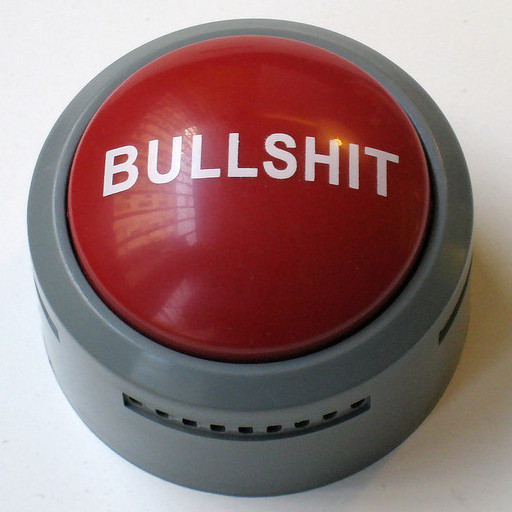Why can’t I use nice words instead of “bullshit”?
 My dear readers, I thank you all for taking me seriously. But some of you have wondered why it’s necessary for me to use a swearword so much. Am I just trying to get attention?
My dear readers, I thank you all for taking me seriously. But some of you have wondered why it’s necessary for me to use a swearword so much. Am I just trying to get attention?
About two weeks into my new career Forrester’s CEO George Colony contacted me. I worked for George for 20 years; it’s been a great relationship in which we frequently challenged each other. There’s a lot of respect there.
“I think you’re making a mistake,” George told me. (George is very much a no-bullshit guy.) “I very much support what you’re doing, but if you use that word, you’ll turn people off. You’ll offend a significant percent of your audience.” I also heard something similar from one of my former coauthors.
It’s not just George. Doug Haslam did a blog post on it, and Kurt Marko took issue with my Twitter updates.
But what I told George, and what I will tell you all, is there is a reason I use the language I do.
It’s because you need me to.
We are surrounded by lazy writing that springs from lazy thinking. In all my conversations about this, when I use the word “bullshit,” people immediately light up. “Yes, please take that on,” people tell me. And if they know me, they add “You are just the right person to do this.” And I am.
I could call it “BS” or “bull.” But part of the problem is people softening their language and making it mushy so they will not offend people. When you call taxes “revenue enhancers,” you’re a bullshitter. And when you see bullshit, but aren’t willing to call it by name, you’re not facing up to the problem squarely.
It’s why the philosopher Harry G. Frankfurt called his book “On Bullshit.” He wanted to make it clear he was talking about something specific with a specific name. Me, too.
I’m going to offend some people. That’s fine. I want to teach you that it’s better to tell the truth and make both friends and enemies, than it is to have a lot of false friends because you’re equivocating. If you’re comfortable being surrounded by bullshit and don’t want to identify it as such, that’s your choice. If you’re not comfortable, though, please stick around and get used to my language. Because backing off from clear language isn’t an option for me.
Photo: Tristan Nitot via Flickr
Go Josh, Go! A crusade worth fighting for!
Rick, thanks to you and all those who’ve expressed support. Gives me the courage to go on.
It’s not so much that it’s offensive – IMO the problem is that it’s overused and so loses some of its intended effect.
I’m intending to reclaim the word for a specific meaning, not shock value.
i own the same BS button so i’m totally with you on that 🙂
There’s much more. Bullshit is so prevalent in business (and life), many delightfully use the modifier “fucking” or one of its many forms to signify that what follows is truth, not bullshit.
Cursing also strips away pretense. It’s a class- and gender-leveler. It signifies passion and courage and individualism. And it conveys trust and confidence in the recipient.
Swearing is deeply American. I fondly recall the many private chats I’ve had with company executives, university presidents, church leaders– all paradigms of propriety– in which they liberally salt their dialogue with f-bombs.
We all need a release from the bullshit. Swearing is our own instant little revolution.
Thank you for swearing.
Your post is a timely coonbirutitn to the debate